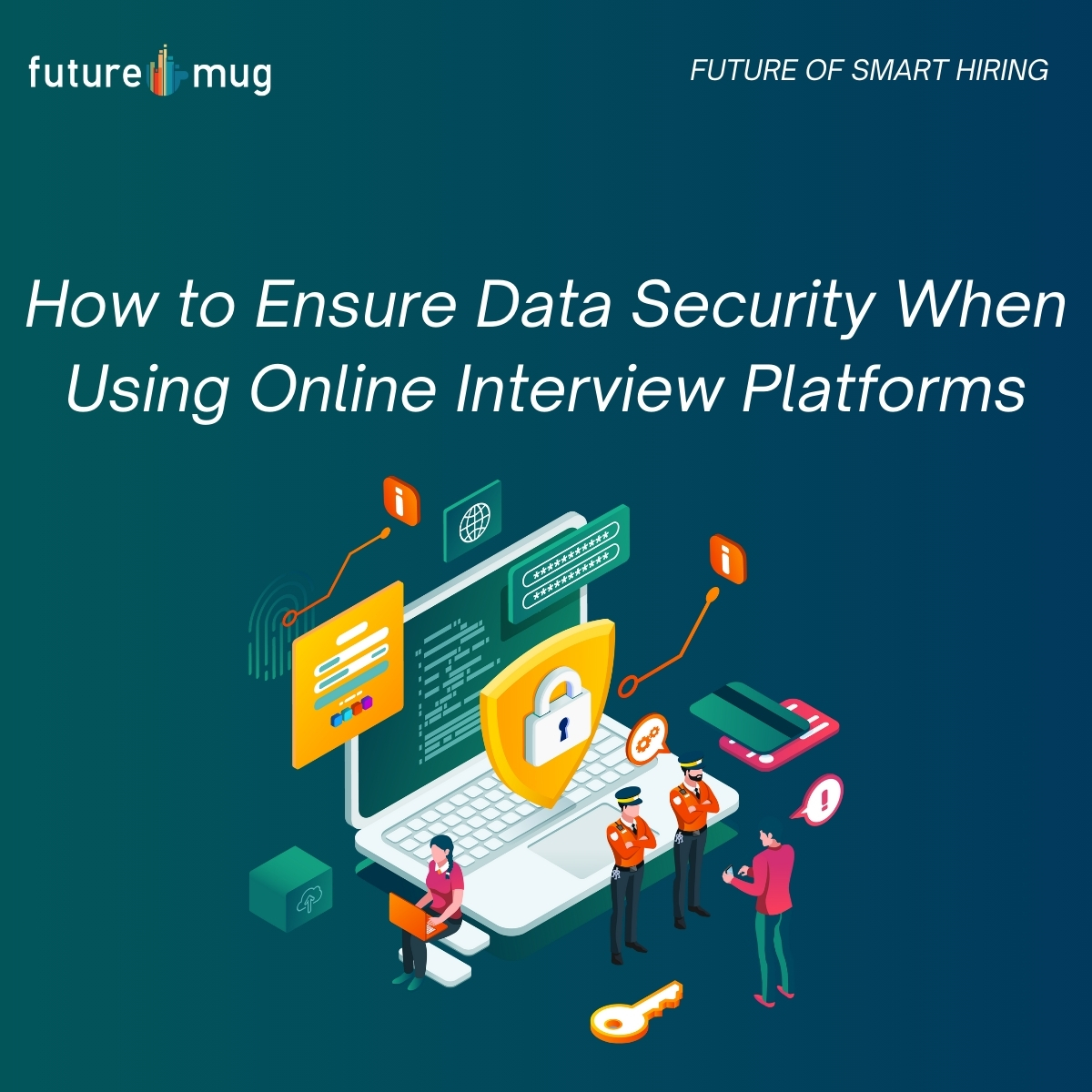
How to Ensure Data Security When Using Online Interview Platforms
In today’s recruitment landscape, many companies are turning to online interview platforms to streamline the hiring process. These platforms offer convenience and flexibility, allowing businesses to interview candidates remotely. However, using these platforms raises important concerns about data security. Sensitive information, including personal details and employment history, is shared during interviews, which requires proper protection.
To safeguard your company and candidates, it’s essential to follow best practices for securing data. In this blog post, we’ll explore how to ensure data security when using online interview platforms and interview outsourcing services.

1. Choose a Secure and Compliant Interview Platform
The first step in securing data is selecting an interview platform that prioritizes security. Look for platforms that are GDPR or CCPA compliant, ensuring they follow strict guidelines for data collection, storage, and processing. Additionally, ensure the platform uses end-to-end encryption for all communications, including video and audio interviews. This prevents unauthorized parties from accessing sensitive information during the interview process.
By choosing a platform like Futuremug, you can be confident that your data, as well as the candidates’ information, is handled securely and in compliance with privacy laws. Futuremug is the best interview platform for hiring candidates in India, that offers a range of advanced security features designed to protect sensitive data throughout the recruitment process.
2. Implement Multi-Factor Authentication (MFA)
Using multi-factor authentication (MFA) an effective way to add an extra layer of protection. MFA requires users to provide two or more verification factors—such as a password and a one-time code sent to their phone—before accessing the platform. This makes it more difficult for hackers to gain unauthorized access, even if login credentials are compromised. Enabling MFA for candidates and hiring managers is a simple yet powerful security measure.
3. Encrypt Video and Audio Communications
Many online interview platforms involve video and audio communication between candidates and interviewers. These streams must be encrypted to prevent unauthorized access. Ensure your chosen platform offers encryption for video and audio feeds. If your platform doesn’t have built-in encryption, consider using third-party tools that specialize in secure video conferencing.
4. Limit Access to Sensitive Information
Restricting access to candidate data based on roles is crucial for maintaining security. Only authorized personnel, such as HR managers and recruiters, should have access to sensitive candidate data. This includes interview recordings, test results, and personal information. Secure storage solutions, such as encrypted cloud storage, are also vital for keeping data safe.
5. Regularly Update the Platform
Software vulnerabilities can expose sensitive data, so it’s important to regularly update your online interview platform to address security gaps. Ensure that your platform provider releases security patches and updates promptly. Regular updates help protect your system from emerging security threats.
6. Be Transparent with Candidates
Transparency is key when handling sensitive data. Inform candidates about how their data will be used, stored, and protected during the interview process. Get clear permission from candidates before recording interviews or collecting personal information. By being transparent, you build trust with candidates and comply with data protection laws.
7. Educate Your Team on Data Security
Make sure everyone involved in the hiring process understands the significance of handling data securely. Provide training on using strong passwords, recognizing phishing attempts, and following security protocols.

Final Thought
Securing data when using online interview platforms is essential for maintaining privacy and trust in the hiring process. You can effectively protect sensitive candidate information by choosing a secure, compliant platform, using MFA, encrypting communications, and educating your team. If you’re considering interview outsourcing, ensure your provider follows robust security protocols. Taking these steps will not only protect your business but also safeguard your candidates’ privacy.